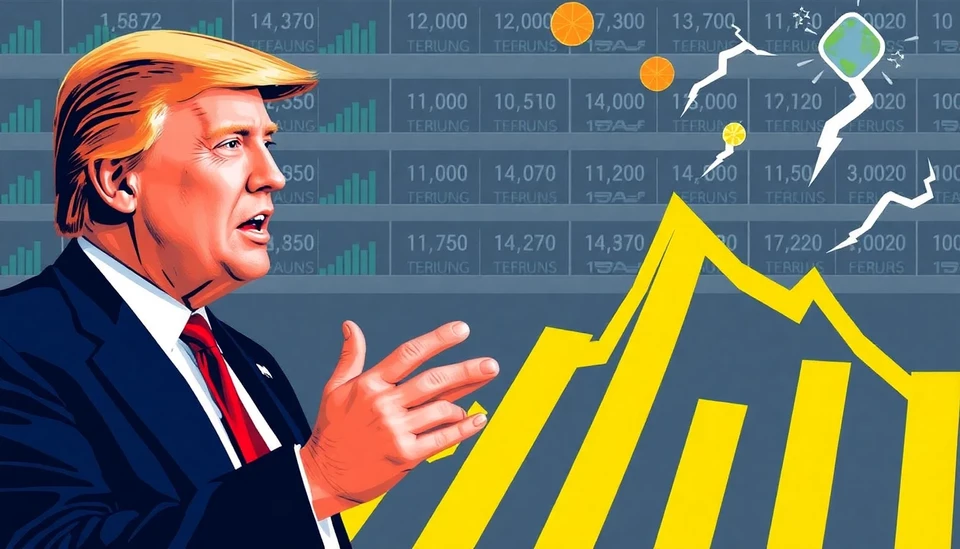
In a surprising turn of events, the financial markets reacted strongly following former President Donald Trump's announcement of a new set of tariffs aimed at several key trading partners. These tariffs, which are projected to significantly impact the cost of goods, have raised concerns among investors who are scrambling to reassess their strategies in a rapidly changing economic landscape. The stated rationale behind these tariffs is to bolster American manufacturing and protect domestic jobs, but many analysts are predicting the repercussions will be felt far beyond U.S. borders.
Immediately after the announcement, market indices tumbled, indicating the unease that' s permeating through the trading community. The Dow Jones Industrial Average dropped over 500 points within hours, while the Nasdaq and S&P 500 also suffered notable declines. The sell-off was exacerbated by fears of potential retaliatory measures from affected nations, which could escalate into a protracted trade war.
Economists are now revisiting their projections for global growth in light of Trump's tariffs. The consensus is that the imposition of these tariffs could derail the fragile recovery seen since the pandemic. As supply chain disruptions continue to plague many industries, the additional costs incurred from tariffs may lead to increased consumer prices and further inflationary pressures.
In a statement following the announcement, Trump asserted that these tariffs are necessary to rectify what he perceives as unfair trade practices and to ensure the economic sovereignty of the United States. However, critics argue that such a unilateral approach may alienate America's trade partners and invite retaliatory tariffs that could harm U.S. exports, particularly in agriculture and technology sectors. Experts caution that the unpredictability of these policies can create a hostile environment for businesses, impacting investment decisions and hiring plans.
Notably, several key allies of the U.S. have begun voicing concerns about the potential fallout from this announcement. Officials from both the European Union and Canada have indicated that they are exploring options to mitigate the economic impacts, including the possibility of their own tariff responses. The complexity of international trade relationships adds another layer of uncertainty to the current economic outlook as stakeholders try to navigate these turbulent waters.
As markets continue to react to the unfolding situation, many investors are advised to brace themselves for volatility. Financial analysts recommend adopting a cautious approach, urging diversification and an emphasis on sectors that are less exposed to international trade risks. The reality is that while Trump aims to support U.S. manufacturing, the broader implications of his tariff policies may ultimately lead to more harm than benefit on both domestic and global scales.
With the world economy at a crossroads, all eyes will be on how traders, policymakers, and economists respond to this latest development. The ramifications of these tariffs could redefine international trade dynamics for years to come.
By keeping a close watch on market trends and political responses, stakeholders can hope to navigate through the complexities that Trump's tariffs have introduced to the already fragile global economic system.
#TrumpTariffs #GlobalEconomy #MarketVolatility #TradeWar #InvestingStrategies #FinancialNews
Author: Laura Mitchell




